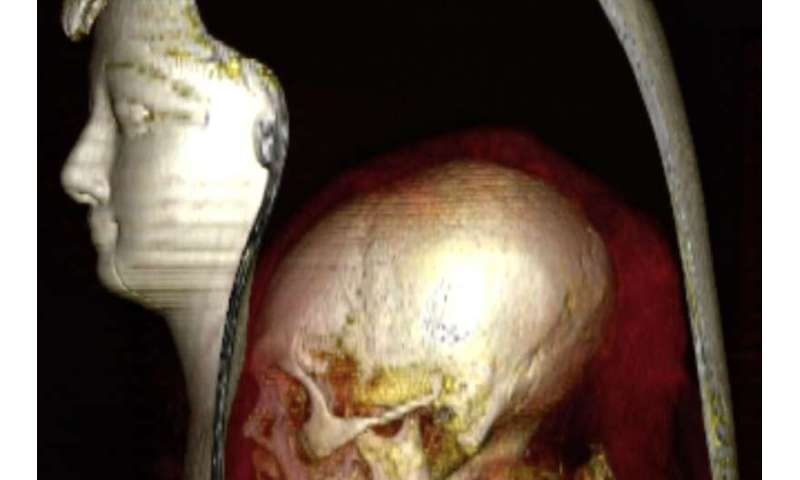Best of Last Week – Digitally unwrapping a mummy, tweeting using only thoughts, Omicron infection impact on Delta

It was a good week for human history as a team of researchers affiliated with multiple institutions in the U.S., the Institute for Advanced Study in Toulouse, France and the Max Planck Institute for Evolutionary Anthropology in Germany found that early humans raised their energy budget by increasing the rate of energy acquisition, not energy-saving adaptation—they increased energy intake efficiencies rather they relying on bipedalism and the use of tools to decrease energy expenditures. Also, an international team of researchers found and excavated the remains of a young man killed approximately 3,600 years ago by a tsunami created by the eruption of Thera—the first remains ever found from the massive disaster. And a team of Egyptian researchers digitally "unwrapped" the mummy of the pharaoh Amenhotep I for the first time in 3,000 years.
In technology news, a 62-year-old amyotrophic lateral sclerosis patient in Australia became the first person to post a message on social media using only his thoughts. Using the Twitter account of the CEO of the company that made the Stentrode Brain Computer Interface, he wrote simply, "Hello World." Also, officials with the Danish energy company Ørstedachieved first power on the world's largest offshore windfarm, located off the coast of England. And authorities in the U.S. asked telecom operators AT&T and Verizon to delay the rollout of their 5G systems to allow for studying its interference with airplanes.
In other news, an international team of researchers identified antibodies that can neutralize the omicron variant of COVID-19, possibly paving the way to a specifically designed vaccine. Also, a combined team from Deutsches Elektronen Synchrotron and the University of Cologne proposed what they described as "nano-chocolates"—a new way to store hydrogen. And a team with members from several institutions in the U.S. and one in China conducted high-resolution lab experiments that showed how cells "eat" material around them.
And finally, a team affiliated with a host of institutions in South Africa found evidence suggesting that people infected with the omicron variant may be less susceptible to the delta variant.
© 2022 Science X Network